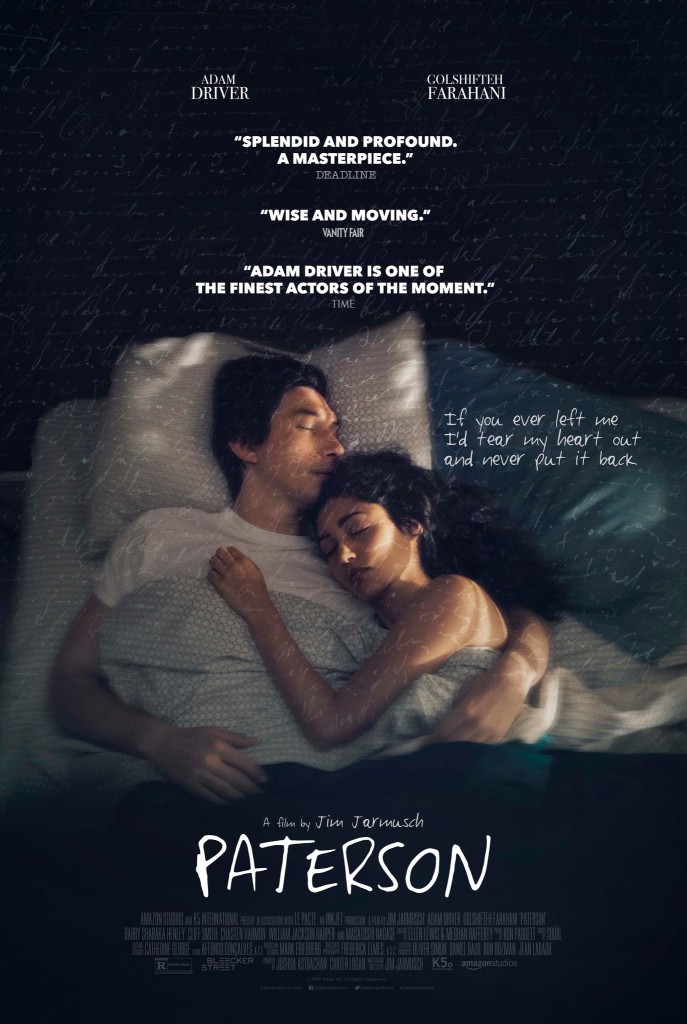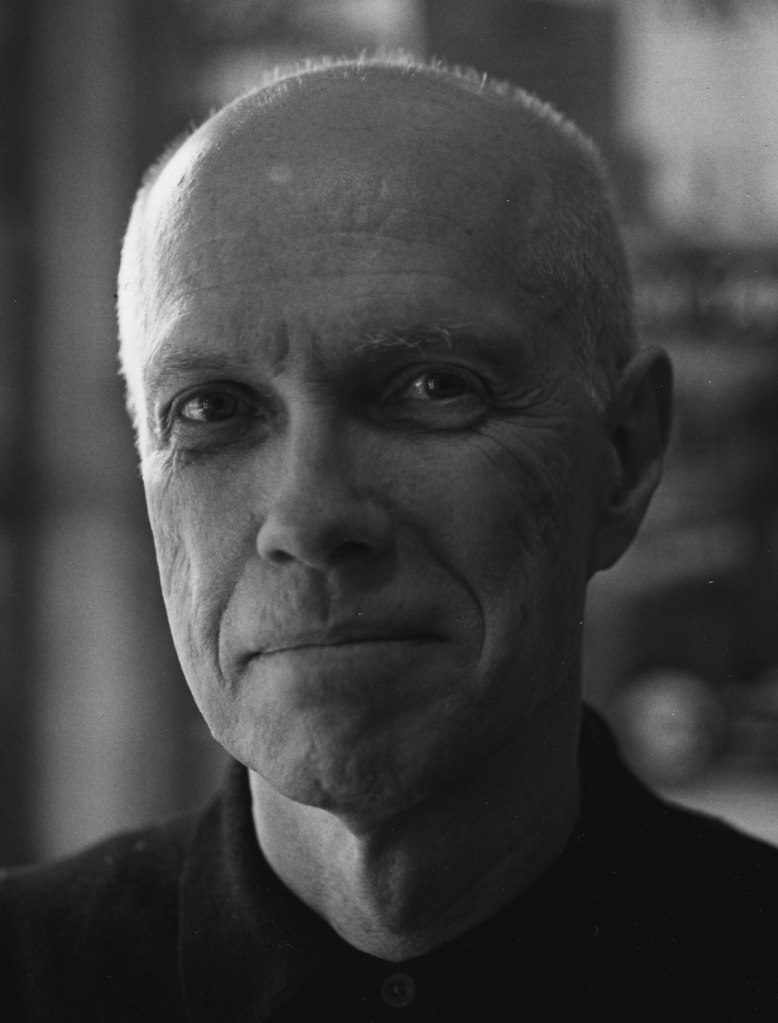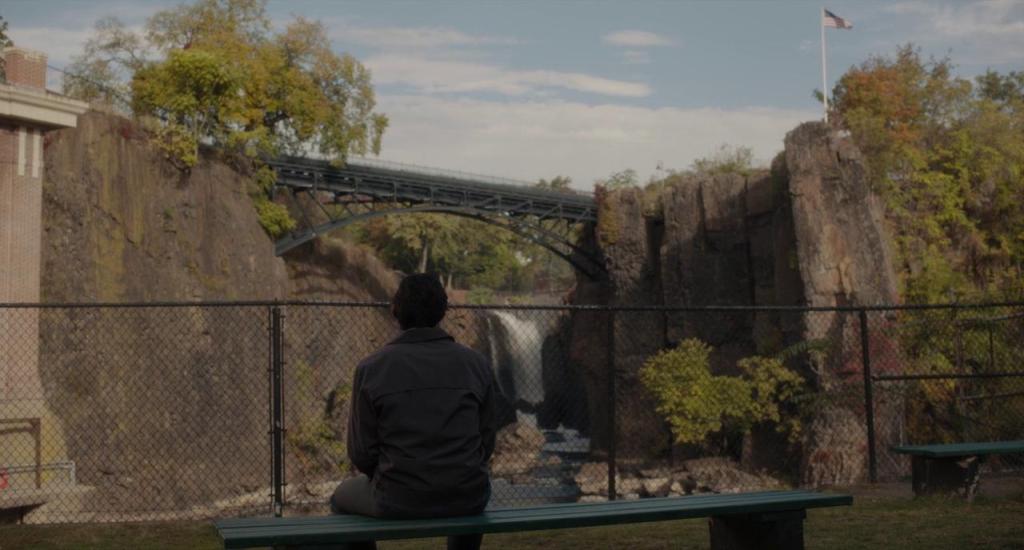Paterson underscores the importance of stepping away from the world to observe it and emphasizes the merit in living life deliberately and slowly.
By Robin Dubree
I don’t know about you, but when I find an actor I really like, I always make it a goal of mine to watch every film they’ve been in. This has lead me down some very weird roads, but I’ve more or less always been pleasantly surprised by my findings. In my foray into the filmography of Adam Driver (who is a Mishawaka native, by the way), I stumbled across the 2016 film Paterson, directed by Jim Jarmusch. The film didn’t just pleasantly surprise me but made me think for days after, and each time I rewatch it I come away with the same refreshed and inspired feeling. It’s kind of lofty praise to lay on such a film, but it changed my life, and to this day affects my perspective not just on writing poetry but on the world around me as a whole.

Paterson follows the daily life of aptly named protagonist Paterson (Adam Driver), a bus driver living in Paterson, New Jersey. He goes through the same routine every day of the week: wakes up beside his partner Laura (Golshifteh Farahani), walks to work, listens to passengers’ conversations on the bus, writes poetry on his lunch break, takes the dog on a walk after work, and stops by the bar for a beer. This routine in and of itself provides the film with a rhythm; interspersed with shots of the sights of the city are poems written in Paterson’s “secret notebook.” The poetry, like Paterson himself, isn’t in-your-face or extravagant. The poems of the film praise the mundane, turn something as simple as a box of matches into a thing of beauty. Paterson underscores the importance of stepping away from the world to observe it and emphasizes the merit in living life deliberately and slowly. The patterns of poetry form all around us, we just have to look closely enough to notice.

It wasn’t until recently that I took the time to research who wrote the poems for the film, and this led me down an equally rewarding rabbit hole. The poet behind all of Paterson’s work is Ron Padgett, born in Tulsa, Oklahoma in 1942. He served as a prominent part of the second generation of the New York School, a movement which took began in the 1960s. Padgett and Paterson director Jim Jarmusch were both students of poet Kenneth Koch, a founding member of the New York School, although they didn’t properly meet until much later. The influence of the New York School is evident throughout the film– not just in Padgett’s ever-present voice (and Koch’s by extension) but in references to Frank O’Hara, whose Lunch Poems Paterson carries with him to work. The New York School is even name-dropped near the end of the film. The poems of this school are simplistic and observational, but witty and spontaneous, taking much of their influence from the earlier Modern and Surrealist movements.
All of these qualities are present in the poem “Another One,” which Padgett wrote specifically for the film:
When you’re a child
you learn
there are three dimensions:
height, width, and depth.
Like a shoebox.
Then later you hear
there’s a fourth dimension:
time.
Hmm.
Then some say
there can be five, six, seven…
I knock off work,
have a beer
at the bar.
I look down at the glass
and feel glad.
“Another One” embodies the easygoing, urban feeling characteristic of all the poetry in Paterson. Paterson writes what he observes in his ordinary world, and takes pleasure in the simple, never neglecting to point out the absurdity of it all. Padgett’s writing feels almost comforting in the sense it feels like having a conversation with a friend. Yet it still has the power and wit to provoke thought, urging readers to adopt a different perspective.
In a way, I think everyone can appreciate the necessity of a film like Paterson. In a world where movies capture our attention by being flashy or shocking, Paterson takes a different approach to its audience. It highlights the poetry in everyday life, and that is enough. It’s the reason I started carrying around a “secret notebook” of my own– to record these moments wherever they come to me. By having the audacity to exist quietly, Paterson only further emphasizes the beauty in the mundane.
